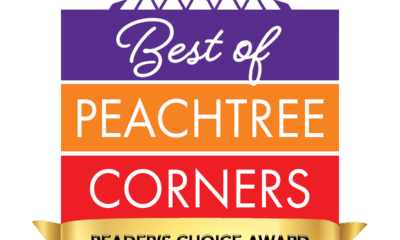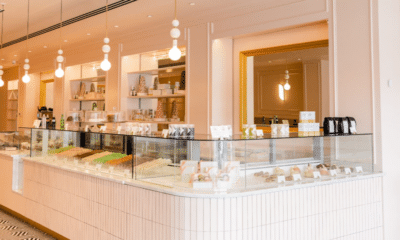Business
How an Adult and Senior Care Service Pivoted their Business During COVID19
Published
4 years agoon
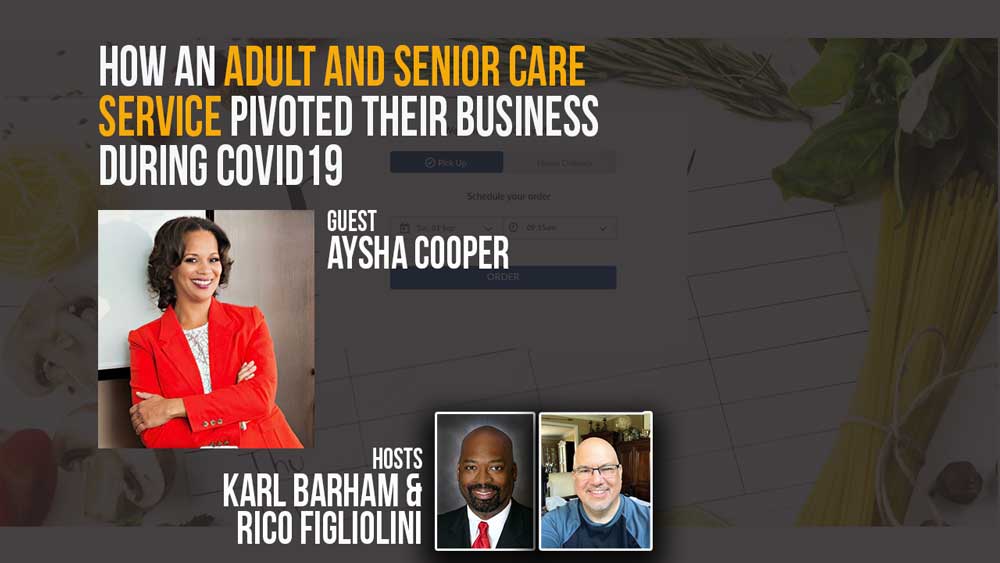
How did one company choose to adapt and pivot their business and stay relevant, during COVD-19? In this episode of the Capitalist Sage, Karl Barham and Rico Figliolini are joined by Aysha Cooper, the owner of McKinley Caregiver Resource Center in Snellville, Georgia. In the world of Senior Healthcare, professionals are looking for answers on how to pivot in business. Aysha has found some great solutions to the problems of today.
Resources:
Phone: (678) 691-1610
Website: https://mckinleyga.com
Social Media: @McKinleyGA
“And the one thing that we want to assist families with is being proactive versus reactive. You know, a lot of times we will get calls in crisis mode and then you’re struggling to pull all these pieces together. So it is how can we give them the tools to plan and prepare properly.”
Aysha Cooper
Where to find that topic in the podcast:
[00:00:30] – Intro
[00:01:52] – About Aysha and the Center
[00:04:53] – Initial Thoughts
[00:05:49] – Continuing Care After Shut-Down
[00:08:05] – Pausing to Reflect
[00:13:03] – Industry Changes
[00:19:56] – Technical Aspects
[00:24:32] – Sharing Advice
[00:28:07] – Closing
Podcast transcript:
Karl: [00:00:30] Welcome to the Capitalist Sage Podcast. We’re here to help bring you advice and tips from seasoned pros and experts to help you improve your business. I’m Karl Barham with Transworld Business Advisors. And my co host is Rico Figliolini with Mighty Rockets, Digital Marketing, and the publisher of the Peachtree Corners magazine. Hey Rico, how are you doing today?
Rico: [00:00:52] Hey Karl, good. Good. Beautiful day outside.
Karl: [00:00:55] It is, it is. Why don’t you tell everyone a little bit about our sponsors today?
Rico: [00:01:00] Sure. Our lead sponsor is Hargray Fiber. They’re a fiber optics company that supplies some of the fastest internet that you’ll see out there in the marketplace. They’re a southeast company that provides, here in the community and Peachtree Corners specifically. High end fiber for businesses, whether you’re small or enterprise size, doesn’t matter, they will provide the tools to do smart office with. We have to be connected to your teleworking staff, to your business. It doesn’t matter which it is, and they’ll create bundles and create packages for you to make you work the best you can in this COVID environment. So go check them out. HargrayFiber.com or Hargray.com/business and check their current promotion of a thousand dollar visa gift card for those that become qualified clients. So check them out. They’re our sponsor.
Karl: [00:01:52] Alright. Thank you. Well, I know a lot of people are doing homeschooling and so fiber optics is becoming a really important part of the landscape for every week. But today I am happy to bring our guest Aysha Cooper who is the owner of McKinley Caregiver Resource Center in Snellville, Georgia in Gwinnett. We’re here to talk a little bit about, how businesses are navigating the pandemic in 2020, she operates, works with the elderly and operate various resources and services to help support that community. And she’s here to share a little bit about her background, her journey in that business, and hopefully share how other business owners can continue to evolve their business as things change. How are you doing today?
Aysha: [00:02:49] I’m good Karl. How are you?
Karl: [00:02:51] I’m doing fabulous. Why don’t you tell everybody a little bit about yourself and how you got into your business?
Aysha: [00:02:59] Okay. Well about, almost 12 years ago, we launched an adult daycare center in Snellville, Georgia. And we have grown over the last 12 years, of course, from three participants to almost 45 to 50 a day. No vans to three vans, three employees to 20 employees. And, then the pandemic happened. So, but we have a love for our senior community and still want to be able to be here to provide care for them and their caregivers. But that is, that was the nuts and bolts of our business since 2010.
Karl: [00:03:41] Oh, so why don’t you, for folks that may not be familiar, what are some of the services and things you provided for our senior citizens and elderly and in the center?
Aysha: [00:03:53] Okay. Adult daycare centers are a day center for primarily seniors that can’t stay safely in their home. But it’s also providing peace of mind to their loved one, caregiver, maybe an adult child. If it’s an adult child that adult child may still work. If it’s a spouse, they may just need a couple of days, where they can go run errands with, you know, without their loved one with them. And so what we provide at the day center or provided at the day center was activities that were specific to stimulating them. You know, especially if they had a cognitive impairment, then we would provide activities, meals throughout the day. But we also had a medical oversight with, because we were an RN supervised center.
Karl: [00:04:53] So, I know most people know that when the pandemic came around, it really impacted elderly community. And those were some of the most at risk population. What did you think when you started hearing about COVID-19 back in probably late February or early March. Did you know who’s going to have the impact is going to have?
Aysha: [00:05:17] Oh, no. I mean, when we shut down, we shut down Wednesday, March 18th and I’ll never forget it. It came so fast. And, you know, maybe it was slowly turning and other people were able to be more on top of it than we were, but we knew people were still in crisis. And so we wanted to provide the care as long as we could. But once, you know, it was a state shutdown, then we had to make the choice to shut down. But we thought we would be back in a couple of weeks.
Karl: [00:05:49] Yeah. So what were the options to the family members of the caregivers once, you know, the center wasn’t available and open? What were some of the things that people were having to do to continue to give care and support to their loved ones?
Aysha: [00:06:06] Well to keep people safe just as we have done, most people have to hibernate in their homes. And, you know, they have the longest stay at home order and it changed often. You know, first it was 30 days away, and then all of a sudden it just kept getting pushed back. So, these people are still at home and doing the best they can with their loved one.
Karl: [00:06:30] So that raises an interesting question. I’m sure you keep in contact with others and in the same industry, same business. What were some of the things that people were doing and what are things that people are doing now in their businesses that specialize in caring for the elderly?
Aysha: [00:06:50] Well, you know, even the, you would have thought that people may still needed services. But I do know that it impacted the home health industry as well. People didn’t want individuals in their home, which is understandable. One thing that we did to pivot was, or at least just keep their loved one engaged, keep them stimulating with their loved one mental
stimulation, is we provided activity packets, we had to do that through our Facebook page. And we did send out an email to families. We had a pastor that’s been coming to our center, providing devotion. I had been open six months and he came and blessed us and had been providing devotion with our participants for all that time. So he also provided us a devotion to share with them. You know, and that was just ways that, you know, to help people stay mentally healthy, hopeful, and engaging. But it was very limited of what we could do, especially not being able to go in people’s homes.
Karl: [00:08:05] So once you’re in this situation and you can’t, you’re not allowed to reopen the center yet at that time, what were some of the things you were thinking of as the options? Walk us through some of the options that you might’ve considered, even if you didn’t go down that path. And what were some of the, what are some of the options you’re you’ve explored pursuing?
Aysha: [00:08:27] Well, to be honest Karl when it first happened, I was in my own space of mental clarity. You know, finding mental clarity. You know, letting go of 20 employees and almost 80 families that don’t have care right now. I mean, you can imagine the weight that someone has to carry with that and it being out of your control. So, I had to really just sit with that for, and it took me a couple of months before I could figure out what I really wanted to do or how we were going to pivot. But sometimes rest is the best place to get clarity. And so I got plenty of it for two months. You know, whether it was, you know, depression or just overwhelmed and, you know, a lot of fatigue, emotionally drained. But I woke up from that with a great perspective. I say, you know, God gave me a good download of how to move forward.
Rico: [00:09:37] You know, it’s funny. I’ve heard this, this remark about how covered has paused people’s lives, right? How they become more in tuned with their kids, with their family, because they’re forced to be in the same area, same place. And even how some people look at their work in their job and it gives them that forced retreat like you just mentioned. Where you’re able to look at life and what you’ve been doing, where you would not have been able to do that before, right? I mean, would you have been able to just sit down and say, you know what, I needed a three day weekend retreat, and just see what I’m doing with this business. Would you have done that before?
Aysha: [00:10:17] You said a three day or like two months retreat? Yeah, with just me and my son here doing digital learning and you’re right. You know, It’s interesting. A lot of people have, you know, you see posts and it’s unfortunate that people are going through this and it’s not been well for them. For me, I just wanted to find, the clarity in how to pivot in a positive way. And it’s allowed me to do that, allowed me to be with my family, like you said, Rico. And I’ll explain that with some of the services that we have launched. But that’s, those are the things that we can’t ever get back. Those moments.
Karl: [00:11:06] It’s true. Yeah. We, I noticed a lot of small business owners, when this started were not sure what to do cause they came so fast. And we had introduced a bridge plan to
people to just simply figure out your breakeven. Figure out how to reduce expenses that make sense for most people. We wanted them to figure out how to increase income and then that’s kind of stabilizing the base. The part that folks started struggling with is one, what kind of conversation, we called it disclosed. What kind of conversations do you need to have with your employees, if they had questions? Your clients and your customers, with your community, how do you stay engaged with them while no one knew how long you were going to be closed and what was going to happen. But then as people started to push their way out of this, it got back to G, get working. Get out there, start, don’t just sit in the turtle shell. But you know, your competitors and other people are doing that. And the ones that started hustling, working, figuring out so many new business models were being created. So many innovative ways to maintain their business, offer new services, find new clients. And the E, the last part of the bridge plan E, was talking about excelling and how do they prep themselves to excel going into the future. Now I know we’ve chated a little bit. How do you see the industry changing that you’re in and what opportunities do you think that you can start moving into to help service that client base that you had, but in a different way, with social distancing, and masks and all of these things that’s creating these barriers.
Aysha: [00:13:03] And, to mention the technical challenge with the population we serve. So we’re still a little bit, but it’s providing care for them in a different way. And that’s what we are doing. And so, when I woke up from my slumber, it was, I have a building, I have a commercial kitchen, I have vehicles, what can I do with it? And that’s what we started working towards was how can we use what we have? You know, to your point about cashflow and cutting back expenses and things like that. You know, it’s even though you’re reinventing the wheel, you still have to be cautious of the investment because of the limited cashflow. And so I had to make sure I was using what I had. And so that’s what we did and we started a home delivered meal service first that was just developed to provide meals for our previous families that were enrolled in the program. Because again, no one thought that this would last that long. So we still had all of their belongings at our center. So that was our way of just seeing them and being able to say hello, take them their belongings, take them a meal. Put our eyes on them. We tried to social distance as much as possible, but that’s hard to do when you have a center full of love and hugs, you know?
Karl: [00:14:45] Yeah.
Aysha: [00:14:46] But we’re moving forward and just looking at what is the need. And the need right now is caregivers are at home and they need support. They don’t get the respite care that they used to get anymore.
Rico: [00:15:08] And you find that, are you finding it easy enough to work with them to be able to do, with the caregivers? You know, with the existing care caregivers I’m assuming.
Aysha: [00:15:21] Is it easy to work with them?
Rico: [00:15:24] Right.
Aysha: [00:15:29] Yeah. It’s easy to work with them. You know, they’re at home. They don’t mind that phone call. They’re glad to have it.
Karl: [00:15:39] So if I hear, if I understand right, a caregiver would drop off their loved one at the center. They’re able to go to work. They are able to do other things and so on. And the center and your staff is able to fulfill different care needs that they might need. And so now that they’re also the primary caregiver and they don’t have that option. Are you describing a system where you support the caregiver? Arm them with the skills, experiences, tools to provide better care for their loved ones while they’re having to be the primaries to do that for the foreseeable future?
Aysha: [00:16:25] Yeah. Ultimately it will be a caregiver resource center. Where we have vetted resources that are available to them all in one place. Because right now it’s very fragmented. And which could discourage anyone from trying to find the resources and the care that they need. So it’s having a compiled list of care providers, vendors that want to support the caregiver. Within the center though, we’ll be able to provide some events, but we’ll have a limited attendance with the virtual component because there’s still a lot of people, you know, that aren’t coming out. But we want them to still be able to participate. And, what we will do is have events around self care. But also have experts speak to them on how to continue to care for themselves, a health care professional. And then there’s some education, that I have trained. One is powerful tools for caregivers and the other is dealing with dementia. Both I was certified through the Roslyn Carter Institute, because they do a great job at providing the education and the tools. So we’ll just be able to bring that to them. And again, still have both components an in person and virtual option for that. So I wanted to be that one place that you can go to and find your, what’s gonna equip you as a caregiver to better take care of your loved one.
Rico: [00:18:09] You know, that’s interesting because when my, God bless them they passed away, my inlaws lived with us, my wife had to find services. She had to call a dozen different places in the state of Georgia, different services, different senior services and stuff. And there was not one place that she could pull these things together from. There were individuals, that would say sometimes you could go here, go visit this website. But not someone that can actually do it for them or become the concierge. If you will, of senior care, to be able to provide that service to her. She had to do all the leg work. And it was I’m sure for everyone, it’s almost like reinventing it every single time, but it sounds like you are able to not only provide some of the services, right, but also be able to pull it together for them. I would imagine.
Aysha: [00:19:05] You know, these are things that we did for the family caregiver that was dropping their loved one off anyway. You know, if they came in with questions or needed assistance with something, then it was our job to find it for them. You know, because this is a challenging moment, you know, when you are taking care of a loved one with a cognitive or physical impairment and either you’re still working, you’re not taking care of yourself. And so it’s
not that we don’t want to take care of our senior, because we love our senior gems, but we do also understand the burden of caregiving and we want people to relieve themselves of the guilt and take care of their own mental health.
Karl: [00:19:56] I think you’re highlighting something really important for folks to think of. In the past year there’s been several business owners that I know that either had to sell their business or consider stepping away from it to care for a loved one. And when they didn’t know what options were available to them, they thought the only thing they can do is to shut down their business or to sell it. And, you know, as I started learning about the services that were offered, just more people being aware that there are options there that people could leverage that could help them with that, help them get the answers. But I would remember some folks spending hours and days going to the wrong place for the wrong information, struggling through that. And I love this idea of a center where this information is happening. And sometimes people could plan ahead. If you know, a family member is moving to town and has needs, you could start the training. You could start educating, start pulling those resources together. Especially as people tend to leave the cold of the north than move down south more. That’s something that happens and it’s hard to find good places where you can get that information and get that support and help. So I think you’re tapping in. I’m curious though, you know, every other business, restaurants started Ubering and different doctors are doing virtual appointments. How do you see technology playing a role in this? And how is there a specific thing that you have adapted to what you used to do live or in person, but have shifted leveraging technology in some way?
Aysha: [00:21:49] Well, we will have to of course have the virtual component. So we’re still working on that. I have a little bit of time, you know, we are figuring things out still. But putting down our systems and foundations and making sure we launch correctly. We’re still here to help in the meantime, but yeah, we’ll have to. And see in our challenge will be as not just being able to provide the virtual component, but then ensuring that the person on the other end has access to that.
Karl: [00:22:24] Yeah. Knowing how to receive it. Well, I know there’s a large scale experiment happening in the school system right now. Where they’re figuring out how to digitally learn and do things digitally. Just recently ordered are these pads where kids could write and draw on and it translates over to their computer. And that would normally be, it’s up to you if they could have the luxury. But now, I’m already seeing how the kids are learning digitally is starting to transform. So I’m a little scared of what the future is going to look like because we’re going to have really fully, digitally native kids that are learning once we get through this period of transition.
Aysha: [00:23:10] But thank goodness we have the platform, because if we didn’t even have the platform to build off of, we would have been in real dire straights.
Karl: [00:23:20] Absolutely. But I think you’re highlighting, we’ve been focusing on the kids. And maybe we need to expand that focus to the elderly and what services can be delivered digitally
and how do we help them cross that gap more effectively. But I could see people showing up and helping people navigate, you know, virtual reality, augmented reality, possibly and all sorts of cool technologies with new applications.
Aysha: [00:23:52] Yes. You know, I do want to, you said something interesting earlier about, helping families prepare. And the one thing that we want to assist families with is being proactive versus reactive. You know, a lot of times we will get calls of in crisis mode and then you’re struggling to pull all these pieces together. So it is how can we give them the tools to plan and prepare properly.
Karl: [00:24:32] What would you advise someone? If I had a family member that was, let’s say relocating to town, and what will be things that loved ones and children could do earlier to prepare. If they know that in the upcoming weeks or months or year, they may have to care for a loved one. What are some of the suggestions you’d give folks?
Aysha: [00:24:56] Well, I think sometimes people have to make that decision and their house isn’t ready for the parent. I mean, one of the first questions is how will mom or dad be able to navigate throughout the house if they are using a walking device. But even before that, we had a lot of adult children. You know, whether it’s, you don’t have the choice or not, there still needs to be a certain level of sensitivity to it. Especially when you’re moving a parent from their town, their friends, their church, everything that they know to a whole new environment. And so you have to be sensitive to their mental health and wellbeing. So it’s how can you get and keep them engaged and involved, no matter what stage it is. So, you know, if they are a fairly independent senior, but just can’t stay safely in their home out of town anymore, you know, how can you keep them engaged in the community? That stimulation helps people with cognitive impairment. It gives them meaning. So we need that. They don’t want to just sit in someone’s home. So it’s researching, first of all, you know, is your house equipped, but then what is in your community that can keep your parent or loved one involved. You know?
Karl: [00:26:33] That makes perfect sense. I like to think that, you know, there are resources out there that can help guide people through this. I’m always curious of, have you come across any instances where you know, you see people really do a great job of preparing that and stepping through that. Are there, is there a trigger or things that people might do and conversations they have with their parents sooner? How do you, how do they even begin that conversation?
Aysha: [00:27:11] You know, that’s a tough one, Karl. Because first of all, you find out how collective your siblings are and who’s the actual care, the financial burden. You know, we always recommend having a family meeting prior to. You know, so that you can identify which siblings are willing to take on what. But yeah, you and I both know those are tough conversations to have with your parents and they aren’t the generation of just sharing.
Karl: [00:27:47] Right. Yeah.
Aysha: [00:27:50] I think more importantly is what can we do now as we sit in our generation to make sure our kids don’t have to go through what some of the adult children are going through now.
Karl: [00:28:07] Very, very good point. Well, I tell you, it’s been fascinating listening to another business owner who’s journeyed through this. And, but I am really excited seeing how you’re figuring out new ways to serve the community and your clients and the families, the family members of those clients there. And as you continue evolving, I definitely want to keep in touch and just learn how it’s coming along. But if folks wanted to just learn more about this and learn what you’re doing, how can they reach out to you and learn more?
Aysha: [00:28:45] Well, we are still in our same place in Snellville. We sit directly behind the Lowe’s off of scenic highway, so they can always find us there. Monday through Thursday, 9:00 AM to 4:00 PM. But a phone call, I know people aren’t just getting out. So they can also give us a phone call at (678) 691-1610. And then follow us on Facebook at McKinley GA.
Karl: [00:29:18] Fabulous. Do you have anything coming up, that in the upcoming month or any, what do you have coming up for the community that you’ve made that they participate in?
Aysha: [00:29:29] Well, we are going to kick off and we will have this on our Facebook page. We’re going to kick off in October National Family History day. So the whole month of October, we’ll be surrounded around family history and learning about your family history and what you’re leaving as a legacy. And then in November, it’s National Caregivers Month. And that’s when we will have our ribbon cutting. So they can find that information on the Gwinnett Chamber website.
Karl: [00:29:59] Perfect. Perfect. Well, I want to thank you. Aysha Cooper, owner of McKinley Caregiver Resource Center in Snellville, Georgia, right behind the Lowe’s on scenic highway here in Gwinnett. And if you are interested in reaching out to her, you’ll see some of the ways to contact her on the website and the show notes for today. So I just want to thank you for sharing your journey through this. And I think you could serve as an inspiration if there was an industry that was hit hard by this, it would definitely yours. And taking the pause, which people need to do for themselves as well as to strategize. One good tip, and then really figuring out different ways to serve the community, putting a plan in place and going out there and doing it. That’s what I love about small businesses. They’re forced to be creative, to innovate quickly, fast. And they’re able to do that, and that’s why it helps drive our economy. So thank you for that and sharing today. I also want to thank our sponsor, Hargray Fiber, who continues to sponsor the family of podcasts. Rico, the podcast, that we currently have going, what do we have coming up on those.
Rico: [00:31:19] On the other podcasts? Well the Ed Hour is in, we’re looking for a guest right now to talk about COVID and the school opening. So we’re going to be scheduling something in the next few weeks on that. And how that’s working for private as well as public schools. And, for Peachtree Corners Life we have a few things in the works for that we’re going to be putting
together. But I know the Capitalist Sage has several more. We’re looking at the former owner of Noble Finn, Cliff Bramble. Also have a podcast Friday morning, actually that we were putting together with Link Dental Care, and Dr. Shyn that’s going to tell them about how the dental business took a hit pretty much during this COVID. But also on how they had to deal with work. You know, if you have it too thick, you really have to find the right dentist that can always do the right job safely for you. So yeah, a lot of good stuff.
Karl: [00:32:14] We have some marketing experts coming, joining us too later on in September, as well as working on some guests to talk to people about how to navigate their decisions around their businesses as COVID-19 is happening and everything else. So we’ll continue to do some of those really interesting things. The magazine Rico?
Rico: [00:32:40] Magazine’s out. I mean, it’s been out for a week. We had a great cover. Great story hit 19,000 plus homes, their mailboxes. So happy to be able to get that out. We are working on the next issue. So nothing ever dies here, right? The deadline continues. We’re putting out a pet issue for the next issue. But we’re also putting, so it’s going to be a pets and their people as a pullout in the magazine. We’re also looking at great backyard retreats because everyone’s sort of still stuck at home in a way they may not be traveling, but maybe your backyard is the best place to be for that time when you’re home. And we’re looking at pulling together a feature story about getting several dozen people or more, almost 50 people sharing what they’re thankful for this time of year. Even in this time of COVID-19, you know, we’re all thankful for our families, for close friends that we have. But what else are you thankful for? You know, and that’s what we’re trying to get, and we’re going to curate all that together and publish that in the next issue as well. So that’s, it’s going to be a good packed issue with a lot of stuff we’re working on. And that’ll be out the first week of October, which it seems like a long time from now, too. So I dunno, it’s going fine.
Karl: [00:34:02] And since you’re one of the hardest working with people in Peachtree Corners when you’re not putting out a magazine and when you’re not doing a podcast, what do you spend your time doing?
Rico: [00:34:13] Mighty Rockets where we produce those podcasts. We have the magazine, we do a lot of the social media product videos. A variety of things online. So digital content, producing blog posts and all that stuff. Pretty much, we find, we work with clients, see what they need. And then we put together a package that works for them. Because you know, you know how it is. Not every client needs the same toolbox or the same tool. You don’t need a hammer on everything. So we look and see what the client has and where we can help them to get further along in thier, especially in their online reach right now.
Karl: [00:34:49] Well, I definitely recommend. I said, I definitely recommend that people think about ways to market their business differently. We’ve moved to a virtual world and all of the things are evolving and getting your message out about the new things that you’re doing in your
business is really important. So figuring out how to do that and getting experts to help you with that is going to be really important.
Rico: [00:35:13] And Karl, you are the man though, that if someone’s looking for an exit plan or someone was looking to get into a new business, I mean, you’re the guy. So, you know, why don’t you tell everyone about how you work that also.
Karl: [00:35:27] Yeah, Transworld Business Advisors, where we help people with finding the businesses to buy, we help people that are in an existing business looking how to sell it the best way to do that, and more importantly, just help people planning through that. At the end of the day the best way for a business owner is to have a plan on how they want to exit, and we can help them walk them through that. We do evaluations for people. We help them consult on their business and you can reach us at www.TWorld.com/AtlantaPeachtree. Our office is in Atlanta Tech Park, so you can stop by there and chat with us. And we continue to want to serve the business community by producing and sharing these Capitalist Sage podcasts with folks so you can follow us on all of your streaming platforms, iTunes, you can follow us on Facebook, iHeartRadio. And the last thing I’ll say for today is we’re sitting here at the end of August in a few months. There’s a really important time coming up. And we just encourage everyone register to vote. It may be a little bit different this year. So if you want to request absentee ballots go on the secretary of state website and request that. A lot of the polling places will be open by now where that is. And this is a year where you should definitely participate in political process and make your voice heard. This country is going through a lot right now and every voice should be counted and we need to help support people to be able to do that, so.
Rico: [00:37:01] Or that if you’re going to be doing that mail in ballot, do it early. Don’t wait until the week before, because they ain’t going to be counted.
Karl: [00:37:08] So that’s right.
Rico: [00:37:09] Do it early on. Do it now, request that ballot now and put it out as soon as possible.
Karl: [00:37:16] Absolutely. Well, thank you everybody for joining us on the Capitalist Sage Podcast. Everyone be safe and be blessed. Take care.
Related
Business
North American Properties Revitalizes Avenue East Cobb
Published
3 days agoon
April 16, 2024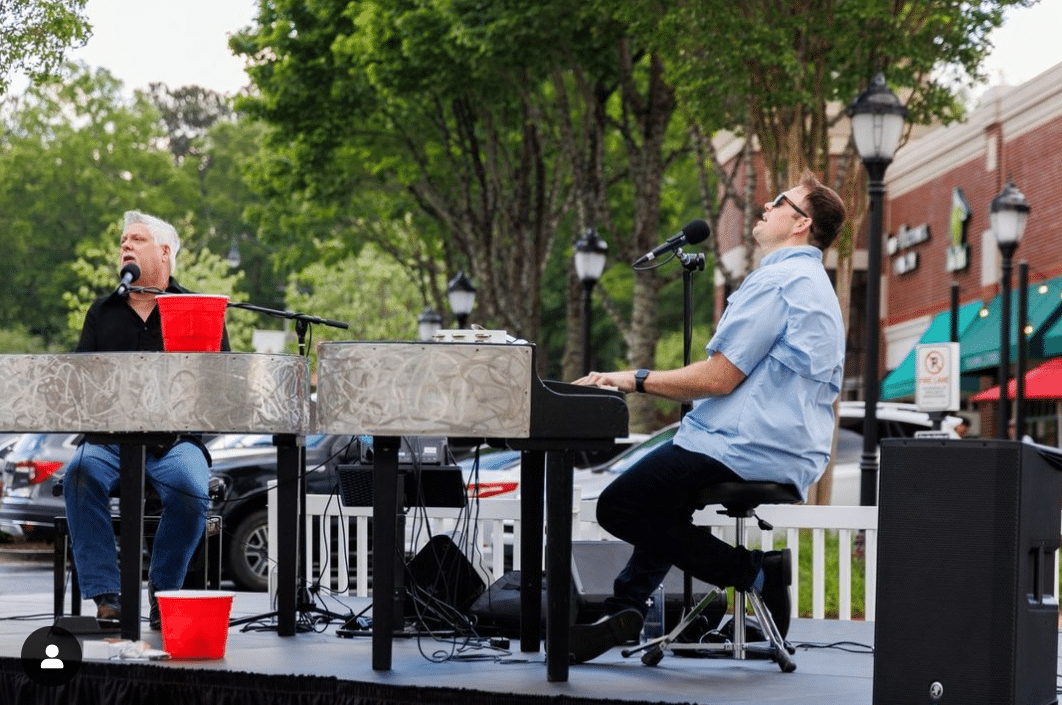
North American Properties (NAP) has revamped the Avenue East Cobb shopping center in Marietta, boosting its appeal to suburban residents seeking a more urban lifestyle. Now, it’s being honored as part of the Atlanta Business Chronicle‘s “Best in Atlanta Real Estate” coverage.
NAP is known for transforming properties like Atlantic Station, Avalon and The Forum.
According to the Atlanta Business Chronicle, the redevelopment involved demolishing part of the main building to build a public plaza with a stage surrounded by restaurant patios.
A new concierge facility was also added, including a canopy for drop-offs. Additionally, smaller retail buildings were created for standalone tenants. The business mix was updated to include names like Warby Parker, Lululemon and Peach State Pizza.
NAP also increased community engagement by partnering with at least 10 local organizations for social events. These efforts have proven successful. Over the last two years, Avenue East Cobb has seen a 36% increase in sales per square foot thanks to a major rise in foot traffic.
More news from North American Properties can be found here.
Related
Business
North American Properties Secures 3 New Brands for The Forum
Published
1 week agoon
April 11, 2024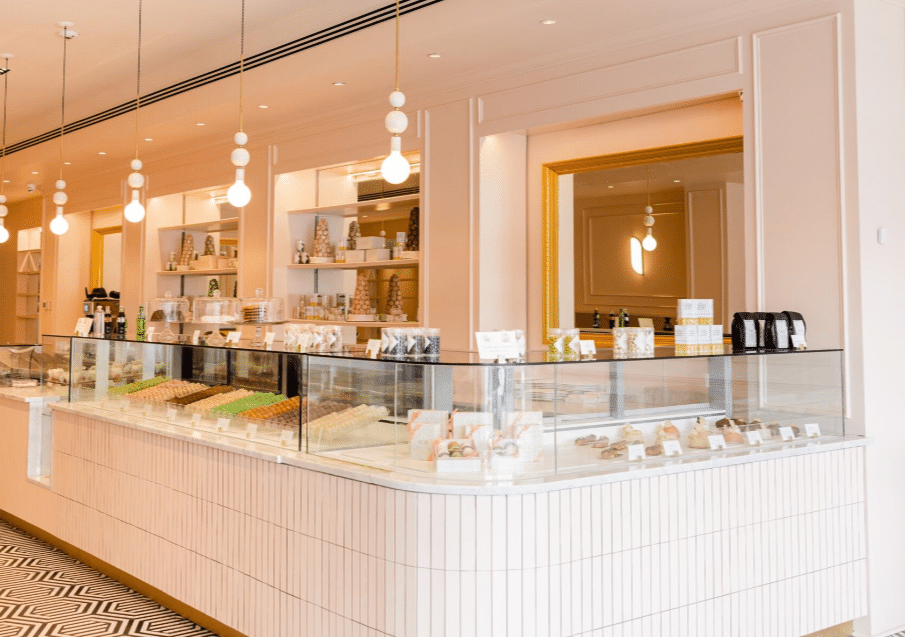
North American Properties (NAP) and Nuveen Real Estate announced three new businesses coming to The Forum Peachtree Corners (The Forum). The new brands include Kendra Scott, Sucré, and The NOW Massage.
“We’re excited to keep expanding our merchandising mix with more experiential concepts that motivate guests to extend their time on property. In addition to these new leases, several tenants are on track to open over the next few months, and we can’t wait to see the impact,” said Brooke Massey, director of leasing at NAP.
Here are the latest deals to be signed at The Forum:
Kendra Scott – Known for its plethora of accessories and customizable Color Bar experience, jewelry brand Kendra Scott blends classic designs with modern sophistication. Kendra Scott jewelry celebrates individuality and self-expression.
The growing brand has also donated over $50 million to local, national and international causes since its launch in 2010. The 2,284-square-foot space, situated next to Lovesac, opens later this spring, marking the retailer’s fourth location in the NAP portfolio.

Sucré – Founded in New Orleans, Sucré is a gourmet patisserie known for its macarons, gelato and other handmade, French-inspired desserts.
The sweet boutique will occupy a 1,718-square-foot space on the north end of the property and is slated to open later this year. Georgia is the brand’s first out-of-state venture, with The Forum being its third metro Atlanta location and eighth overall.
The NOW Massage – This brand is helping people discover the healing benefits of massage therapy.
The customizable menu offers guests three signature massage styles and a variety of exclusive enhancements like Deep Tissue, Herbal Heat Therapy, Hemp Calm Balm, Gua Sha, Gliding Cupping and more. Located near Mojito’s, the 2,414-square-foot massage boutique debuts late summer.
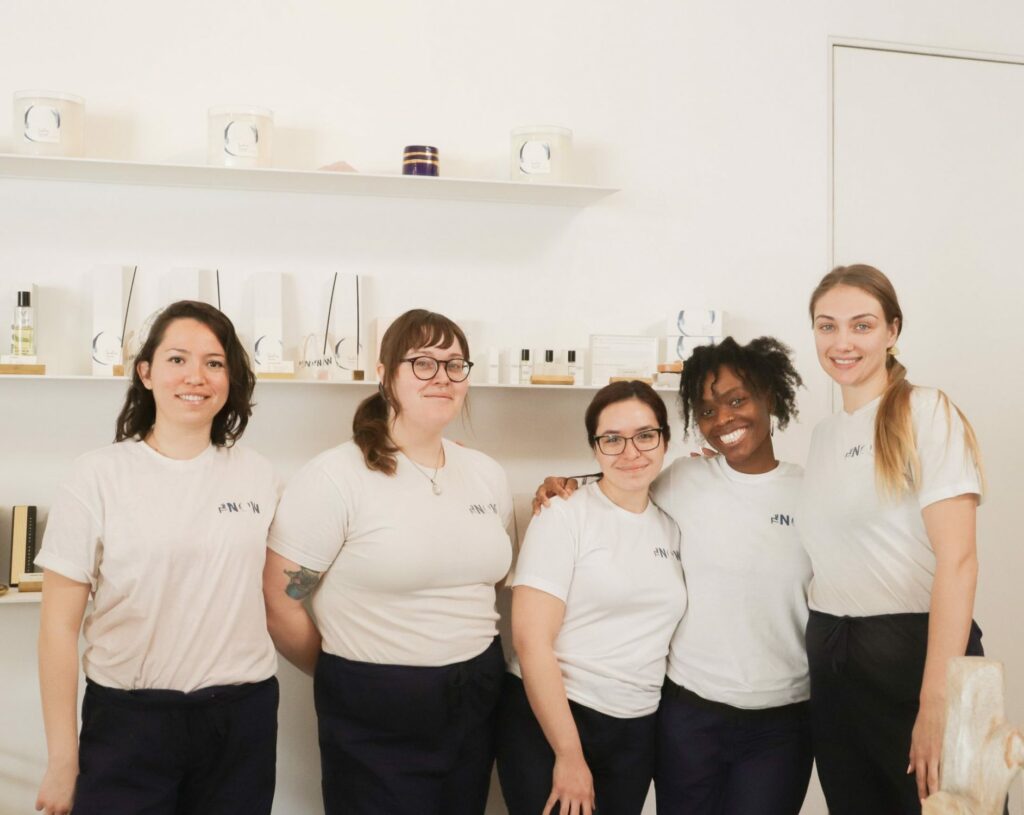
These businesses join:
Alloy Personal Training (opening this month),
Cookie Fix (open),
Gallery Anderson Smith (opening this month),
Giulia (opening this spring),
Lovesac (open),
Nando’s Peri-Peri (coming winter 2024), and
Stretchlab (open).
Since acquiring the property in March 2022, NAP has executed 39 deals with new, existing and temporary tenants alike.
To stay up to date on the latest happenings at The Forum, follow on Facebook, Instagram, and X or visit theforumpeachtree.com.
Related
Business
Cybersecurity Expert Explains How to Protect Your Personal, Business Assets from Threats
Published
2 weeks agoon
April 3, 2024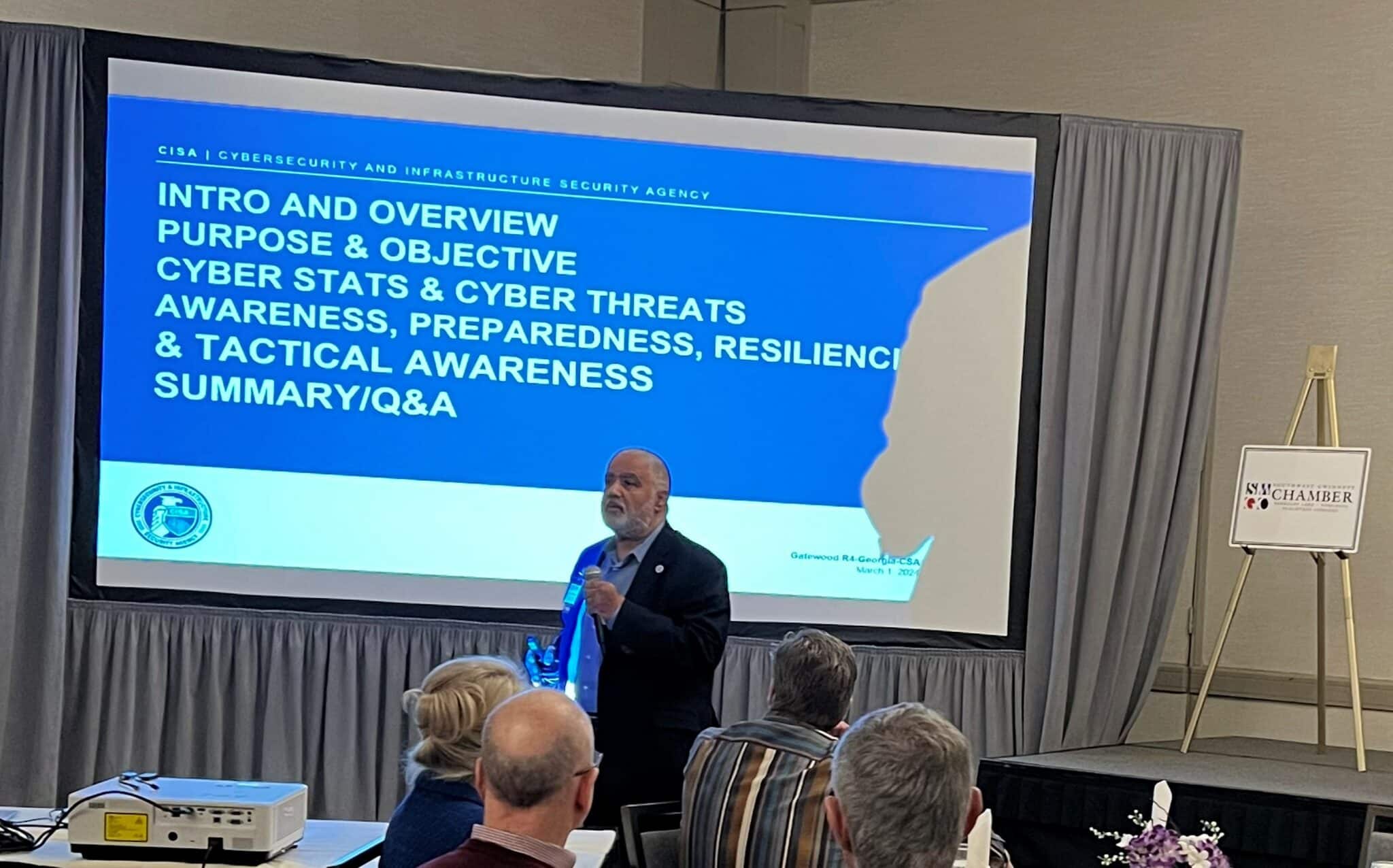
When Stanton Gatewood began working in cybersecurity nearly four decades ago, it wasn’t even called cybersecurity.
“It was just Security and Information, Security InfoSec and things like that,” he said. “I’ve been very blessed to have worked in cybersecurity for 37 years or so. I worked in the United States Military and the United States Air Force.”
There wasn’t even a Department of Homeland Security back then. It wasn’t created until 2002.
Gatewood was the featured speaker at Southwest Gwinnett Chamber of Commerce’s First Friday breakfast on March 1 at the Hilton Atlanta Northeast. He shared information with the audience of small business owners, nonprofits and community leaders about the realities of cybersecurity and how to safeguard against threats.
Stanton Gatewood’s background in cybersecurity
Gatewood’s resume is quite extensive. He is the U.S. Department of Homeland Security and CISA Region 4 Cyber Security Coordinator, an advisor for the State of Georgia. He was formerly the Chief Information Security Officer (CISO) for the state of Georgia, the Board of Regents of the University System of Georgia, and the University of Georgia.
He has over 35 years of cybersecurity and e-privacy experience in cybersecurity program management, strategic planning and executive leadership. He has worked in U.S. federal, state, local, territorial and tribal governments, as well as higher education and several top-10 global corporations.
Gatewood is also a USAF veteran and has served as the vice president for information technology and the chief information officer (CIO) for Albany State University. He has built two centers of excellence in cryptography and cyber awareness and training.
“You cannot stream news, watch TV or read a newspaper without the topic of cybersecurity [coming up],” he said. A lot of people will stand up and talk to you about cybersecurity, and they’re preaching fear and uncertainty that I don’t have.”
Understanding cybersecurity
Gatewood started his presentation with an overview of cybersecurity and went through some terminology.
First, he addressed awareness.
“Awareness can be broken into two categories, situational awareness and user awareness,” he said.
He encouraged the audience to learn as much as they could about cybersecurity and electronic piracy. Even though many people think they are aware of threats, they still click on suspicious links, leaving them vulnerable to attacks.
“Situational awareness comes from the military. It means they’re letting us know exactly who’s in the area and what the environment is made up of. ‘What are our resources available? Who else is in the field that we communicate with and rely upon?’” he asked.
By staying aware, people should know where they’re going on the internet, who they’re communicating with, and that an attachment is safe to open. User awareness is a component of the security policy that should include educating and testing employees to help protect the business against cybercrimes, including phishing and other social-engineering attacks.
Preparedness is also key
“Do not fall asleep at the wheel of the internet,” said Gatewood. “Do not think that those 5 million people out there are all your friends.”
Social media accounts like Facebook can also be gateways for cybercrime.
“Over 65% of the breaches on the internet come from human error,” he said.
According to the government site ready.gov, cyberattacks can occur in many ways, including:
- Accessing your personal computers, mobile phones, gaming systems and other internet- and Bluetooth-connected devices.
- Damaging your financial security, including identity theft.
- Blocking your access or deleting your personal information and accounts.
- Complicating your employment or business services.
- Impacting transportation and the power grid.
How to be resilient
Gatewood said almost everyone will be the victim of some sort of cyberattack. How the individual or business survives depends on resiliency—the ability to anticipate, withstand, recover from and adapt to adverse conditions, stresses, attacks or compromises on systems.
“You must have resilience; you must be in shape,” said Gatewood. “You must have the mindset of ‘I will not allow this to keep me down. I will go get my incident response plan. I will execute my incident response plan. I will find out if it’s truly an incident. I will then morph myself into a disaster recovery plan. I will morph myself into a business continuity plan. And then I’ll have a resumption of business plan.’”
Gatewood said he’s been called to help many times, and when he asked about a response plan, everyone looked like a deer caught in headlights.
“Moving in resilience, the capacity to withstand or recover quickly from any difficult situation or toughness, [is crucial],” he said.
He shared a term, “left of boom/bang,” that he wanted the audience to remember. It encourages them to take a proactive approach to cybersecurity and avoid possible threats by making decisions based on observation and intuition to prevent the bad from happening.
By the numbers
- There are 5.3 billion internet users (66.2% of the world’s population).
- There are 17 billion devices on the internet.
- There are 1.6 billion records or files lost or stolen in the fiscal year 2023/2024 so far.
- $183 is the average cost of a data breach per record.
- 5.04 billion people used social media in 2023.
(Source cisa.gov)
Related
Read the Digital Edition
Subscribe
Keep Up With Peachtree Corners News
Join our mailing list to receive the latest news and updates from our team.
You have Successfully Subscribed!

April/May Events Going on at Gwinnett County Parks

8 Theatrical Performances Coming to the Peachtree Corners Area

Enter Our Readers’ Choice Awards 2024

North American Properties Secures 3 New Brands for The Forum

Georgia United Methodist Foundation Announces Changes to Finance Team

North American Properties Revitalizes Avenue East Cobb

Exploring Israeli Innovation in the Smart City Sector with Einav Gabbay [Podcast]

Georgia United Methodist Foundation Announces Changes to Finance Team

North American Properties Revitalizes Avenue East Cobb

Exploring Israeli Innovation in the Smart City Sector with Einav Gabbay [Podcast]

North American Properties Secures 3 New Brands for The Forum

April/May Events Going on at Gwinnett County Parks

8 Theatrical Performances Coming to the Peachtree Corners Area

Enter Our Readers’ Choice Awards 2024

The End of an Era: Dr. Mary Kay Murphy’s Final Term on The Gwinnett County Board of Education

Light up the Corners [Video]

Capitalist Sage: Business Leadership in Your Community [Podcast]

Cliff Bramble: A Culinary Adventure through Italy

Top 10 Brunch Places in Gwinnett County

A Hunger for Hospitality

THE CORNERS EPISODE 3 – BLAXICAN PART 1

Top 10 Indoor Things To Do This Winter

The ED Hour: What it takes to Remove Barriers from Education
Peachtree Corners Life
Topics and Categories
Trending
-
Parks & Recreation1 week ago
April/May Events Going on at Gwinnett County Parks
-
Arts & Literature1 week ago
8 Theatrical Performances Coming to the Peachtree Corners Area
-
Readers' Choice Awards1 week ago
Enter Our Readers’ Choice Awards 2024
-
Business1 week ago
North American Properties Secures 3 New Brands for The Forum











